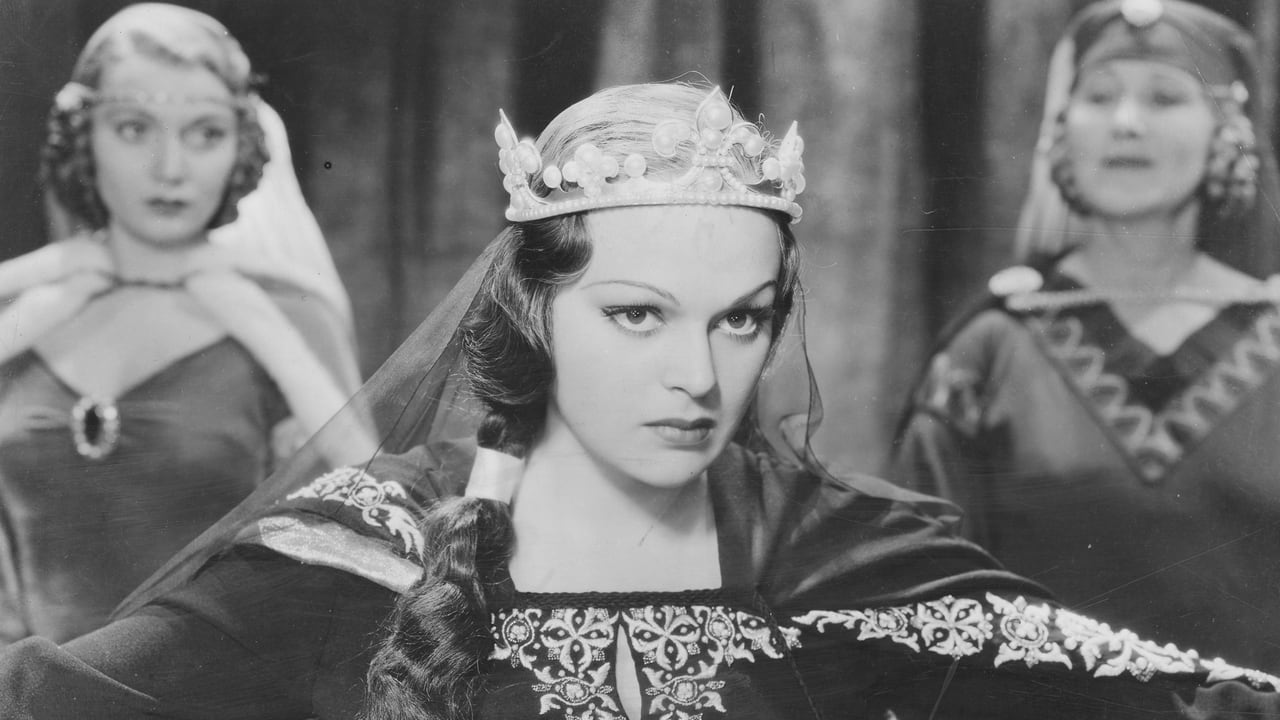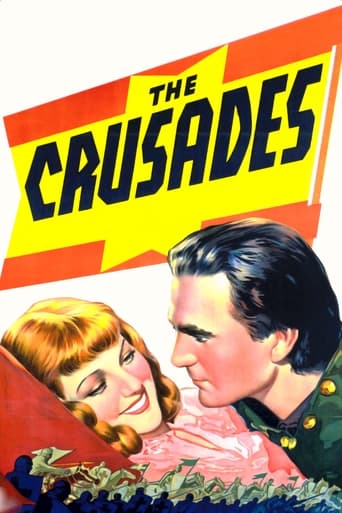

The production values of this picture are excellent. You can tell from the sets and costumes a lot of money was spent. The great weakness of this film is the script and acting technique. The script is straight 19th century maudlin melodrama. Unfortunately, the acting technique is the same. Lines are delivered in a stilted, formal manner common to the stage of an earlier era instead of the more natural technique we are accustomed to seeing in film today. The 30's was indeed a transition period in acting technique: the over wrought melodramatic technique of the silent pictures and stage in the early thirties to the natural technique finally adopted in the late 30's. Of course, the plot itself is implausibly melodramatic "love conquers all" for "world peace" kind of thing. Still, for a film student its still worth watching for the fine directing.
... View More"The crusades" (1935) directed by Cecil B.De Mille is as story conceived as love affair, explaining part of the influence that it produced in the internal affairs of two countries as nations in Europe, promoting the allegedly third crusades against Islam, situated at the corner of Southeast on Mediterranean sea. Overall, at the time of vessels charged with horsemen, some of them who went fighting for an apparently common faith but forgotten the symbolic land and cultural influence of diversified local populations, far away of their respectively reigns like France and England. The spirit of cavalry, wedding intrigue, eroticism on the drapes and campaign bed of kingdom of Christianity are ingredients of adventure at the land lost, meaning expansionism and its pretext for quarreling about frontiers and warriors in a love affair at the mood. Director Cecil B.De Mille enjoying us with such subject, altogether he capsizes over our child mind, maybe he was thinking in another configuration for the problem of imperialism and the propriety of rights from these times linking two things, fanaticism and medieval glory at the time of Abyssinia and its nature of rivalries where sex attraction concealed by the strength for power. A tent is the main location concerning an attitude for dealing and in this place both sides made what is better for each one of the intervenor before peoples in conflict in a postponed peace deal. The scene is that tent where both sides entering and a woman is the subject of sharing in between affects that are responsible for the way that the present crusade is understood by the chiefs in place with their costumes and clothes that the director put his energy not to explain why but what burns the heart of kings in that phase of humanity and superiority of Europe before its extremities... This kind of acting at the time was watched as explaining the orders of knighthood in a displaying manner of obvious meaning on public stage at the corner of a town of the ancient world. But historically displaced from the real present time of then in 1935 not at all in relationship of others in incendiary domestic mission where it was inserted such a Hollywood production as a flop.
... View MoreTHE CRUSADES is a film of awesome power with some of the finest costumes, epic battles and all the pagentry expected of the legendary Cecil B. DeMille. Henry Wilcoxon's Richard the Lionheart gives (along with his star turn as Marc Anthony in DeMille's CLEOPATRA the previous year) the greatest performance of his entire career. Mesmerizing in its power, just as effective today as when it was filmed in 1935. A must-see for all who esteem the epic/spectacle genre. Fine performances given by an all-star cast right down to DeMille regulars in supporting roles. They don't get much better than this!
... View MoreA playboy king & a beautiful princess. A holy hermit & a sacred mission. Intrigue & romance & sin & spectacle. In fact, another Cecil B. DeMille history lesson.This time, DeMille takes on THE CRUSADES, a highly complex military & political enterprise that actually played out over 200 years. He focuses on one episode: The Third Crusade & England's King Richard the Lionheart's thrust to claim Jerusalem & the Holy Land from the Seljuk Turks in 1188-1192. Interestingly enough, DeMille gets a lot of his historical facts correct, but he does spend quite a bit of time detailing Richard's lustful, wanton ways.Literature & film have tended to wildly romanticize Richard. In historical fact, he was a bad king interested primarily in his own glory. He spent only 6 months of his reign in Britain, he bankrupted the Treasury with his Crusading schemes and he abandoned his young wife. But such is the power of Romance that he is generally seen as the beau ideal of kingliness.Henry Wilcoxon is a good, sturdy, if unspectacular, Richard. Loretta Young is beautiful, as always, as the Princess he marries. Sir C. Aubrey Smith is magnificent as the Holy Hermit who is the spiritual leader of the Crusade. Others in the fine cast are Alan Hale, Joseph Schildkraut, Mischa Auer & John Carradine (pay close attention to find him).As a master of spectacle, DeMille really comes through towards the end of the film with the siege & capture of Acre (north of present day Haifa in Israel).All the stops are pulled out to show the full panoply & horror of mediaeval battle.
... View More